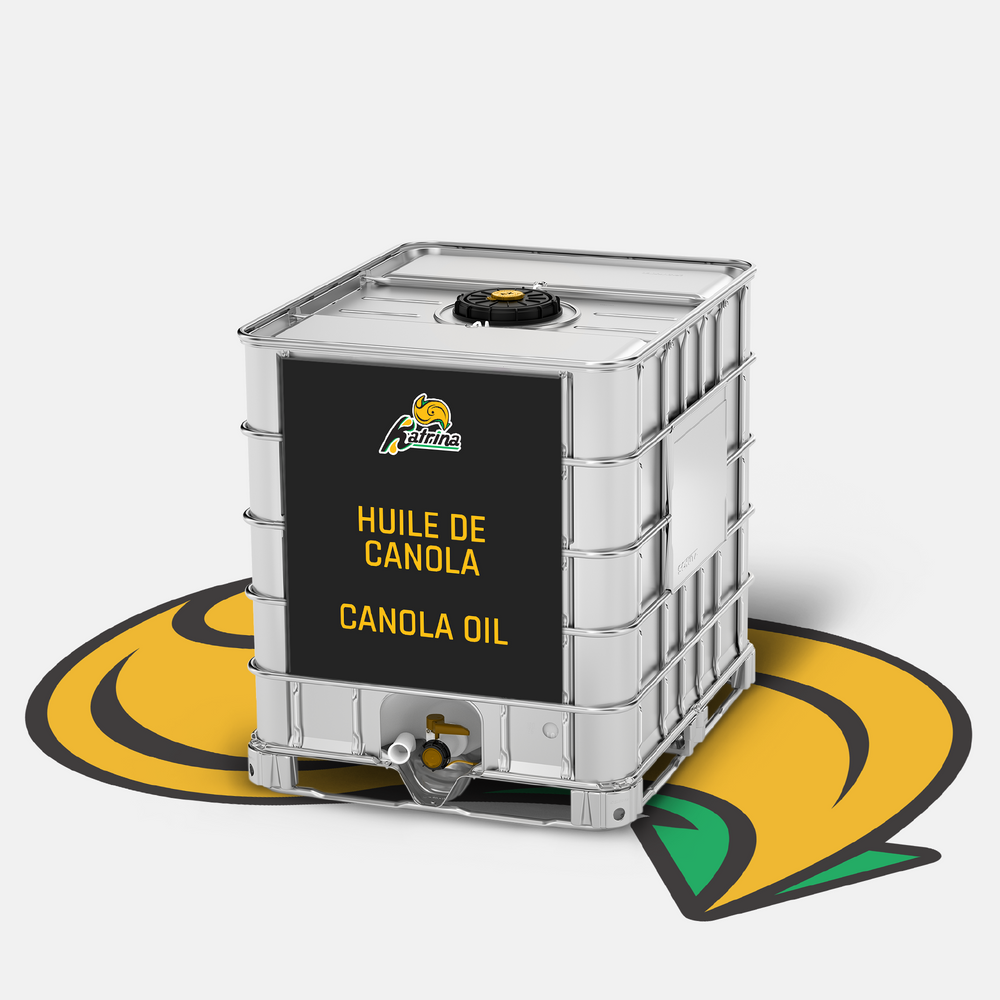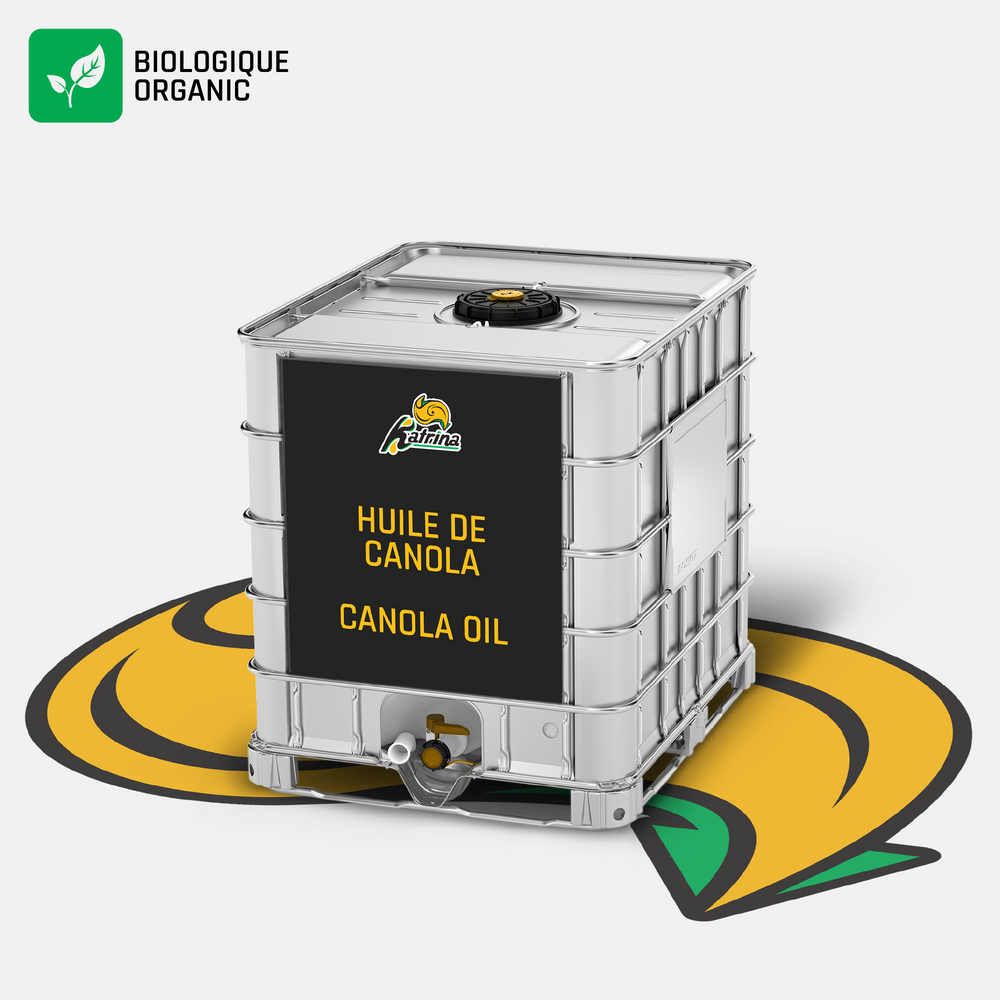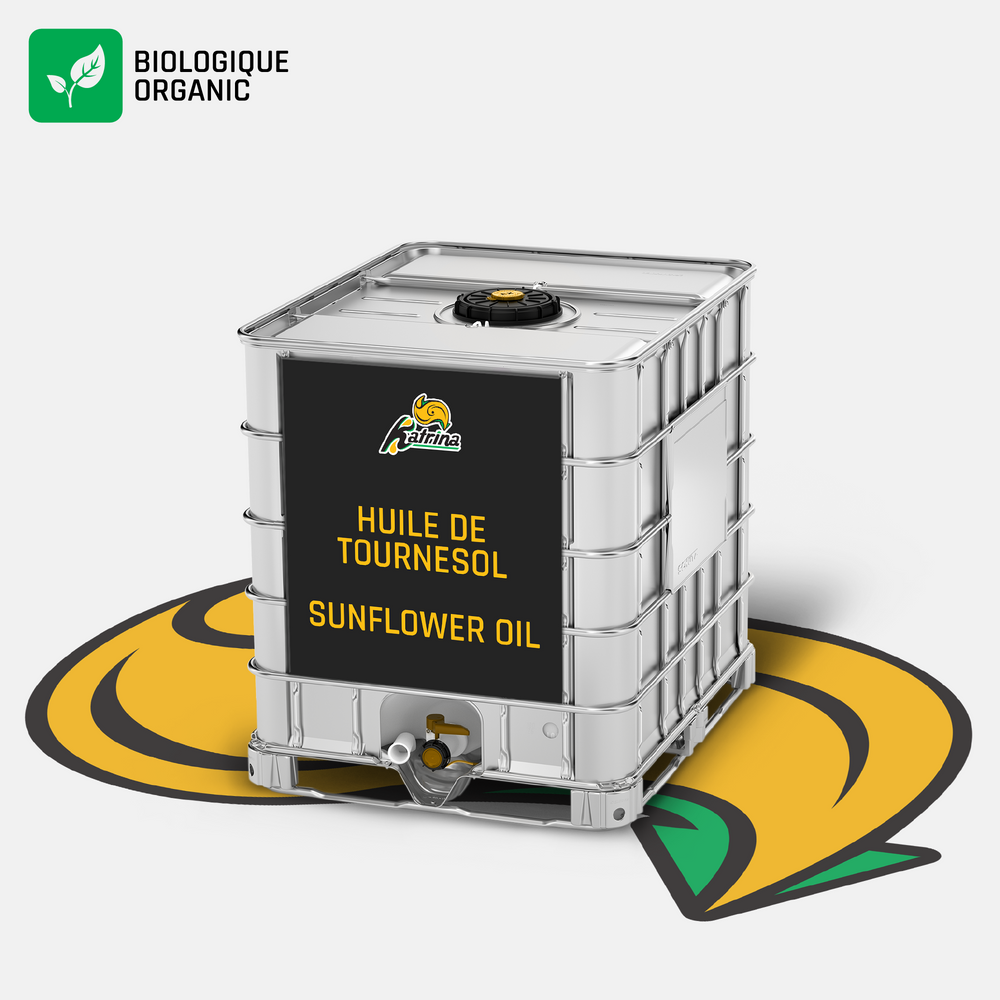Canola vs. Sunflower Oil: Which One Should I Use?
Canola and sunflower oil are kitchen staples that can be used interchangeably in most recipes, but there are a few differences to consider when choosing between the two.
This article compares the flavour, smoke point, health benefits, and cost of canola and sunflower oil to help you pick the best option for any situation.

Flavour Profiles: Canola vs Sunflower Oil
During production, canola and sunflower oil typically go through a process called RBD, meaning they are refined, bleached, and deodorized to remove impurities and lengthen shelf life. This means that there’s little difference between the taste, odour, and colour of refined canola and sunflower oil by the time they arrive on supermarket shelves.
Specialty oils like cold-pressed sunflower oil, on the other hand, retain more flavour because they don’t go through RBD and are extracted with mechanical methods. You’re more likely to find these oils from small-scale producers.
If you’re choosing between unrefined oils, it’s important to consider your preferences and what the recipe calls for. Unrefined canola oil has a mild and neutral taste which allows the other ingredients in a dish to shine, while unrefined sunflower oil has a slightly nutty taste that can enhance the overall flavour, especially for recipes that need extra depth.
Smoke Point: Sunflower vs Canola Oil
The smoke point of an oil refers to the temperature at which it begins to break down and produce visible smoke. Going beyond this will result in a decline in the oil's nutritional quality and flavour. Here are the smoke points of canola and sunflower oil:
| Smoke Point ( °F) | Smoke Point ( °C) | |
| Canola Oil | 468 °F | 242 °C |
| High-Oleic Canola Oil | 475°F | 246°C |
| Expeller-Pressed Canola Oil | 464 °F | 240 °C |
| Sunflower Oil | 464 °F | 240 °C |
| High-Oleic Sunflower Oil | 478 °F | 248 °C |
| Cold-Pressed Sunflower Oil | 388 °F | 198 °C |
Source: Oil Smoke Point Chart published by Canola Eat Well
Is Canola or Sunflower Oil Better For Deep-Frying?
Given that deep-frying temperature can reach up to 400°F (204°C), both canola and sunflower oil are good choices for high-heat cooking. Whichever variation you choose (except cold-pressed), they can withstand high temperatures without undergoing significant degradation.
Related post: Is Sunflower Oil Good for Frying?
Health Benefits: Canola and Sunflower Oil
Canola oil is a heart-healthy choice, especially for those who’d like to keep their cholesterol in check. It contains a low saturated fat content of around 7% and a high concentration of polyunsaturated and monounsaturated fats (considered healthy fats). It also has a favourable ratio of omega-6 to omega-3 fatty acids, particularly alpha-linolenic acid (ALA), which is linked to cardiovascular health.
On the other hand, sunflower oil has a low saturated fat content (around 9%) and is high in polyunsaturated and monounsaturated fats. It’s also a rich source of vitamin E, a powerful antioxidant that helps protect the body's cells from damage caused by free radicals.
Opt for high-oleic sunflower oil for a more heart-healthy option compared to regular sunflower oil. This variation contains a higher concentration of oleic acid, which can lower cholesterol and have anti-inflammatory properties.
GMO and Non-GMO Options for Canola and Sunflower Oil
Most of the canola oil available today is made from genetically modified (GMO) plants designed for higher yields and pest resistance. However, not everyone is comfortable with GMO products. Sunflower oil is one of the cooking oils that are naturally non-GMO, so it’s a safer choice for those avoiding genetically modified foods.
Non-GMO canola oil is also available for those who favour canola but want to avoid GMOs. While this comes at a slightly higher cost, you can be assured that the oil meets strict non-GMO production standards.
Which is Healthier, Canola Oil or Sunflower Oil?
Both canola oil and sunflower oil have their own nutritional value, so there is no definite answer to which oil is healthier. You’ll need to consider an individual's specific dietary needs instead.
Helpful reminder: As with any other oils, make sure to consume them in moderation to keep good fats at a healthy level!
Cost Comparison
In general, canola oil costs less than sunflower oil due to lower production costs. This budget-friendly factor makes canola the go-to cooking oil for many households and commercial kitchens in North America, especially for bulk uses.
However, it's important to consider that prices can fluctuate depending on factors like brand, certifications, and purchase quantity. If you're using large quantities of oil, buying in bulk may offer more cost-effective options for both canola and sunflower oil.
Which One Should I Use?
For High-Heat Cooking: Both canola and sunflower oil can be used, but high-oleic sunflower oil offers a slightly higher smoke point.
For Flavour: If you’re looking to add flavour to your dish, cold-pressed sunflower oil might complement it better. Otherwise, opt for canola oil for a neutral taste.
For Health: Both oils are heart-healthy, but sunflower oil offers more vitamin E, while canola oil has a better omega-3 ratio.
For a Budget-Friendly Option: Canola oil is usually cheaper than canola oil. If you’re buying large amounts of oil for everyday cooking and deep-frying, then bulk canola oil would be more affordable.
Ultimately, the "best" cooking oil still depends on the recipe and your personal preferences, so take this opportunity to experiment and find out what works best!
Related posts:
Alternatives for Canola Oil: Cooking, Baking, and Other Uses
How Is Sunflower Oil Made? – Distributions Katrina
Is Organic Canola Oil Healthy? – Distributions Katrina
References
“Processing Edible Oils” – Penn State Extension
“Smoke Point” – Canola Eat Well
“Tips for Deep Frying At Home” – Canola Eat Well
“Choosing heart-healthy oils for home cooking” – Harvard Health Publishing
“Canola oil: heart-healthy oil for all kinds of cooking” – Canola Council of Canada
“Profiles of Canada’s leading canola markets” – Canola Council of Canada
“Vitamin K - Health Professional Fact Sheet” – National Institutes of Health (NIH)













